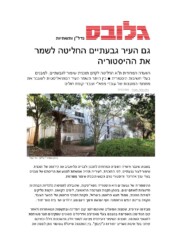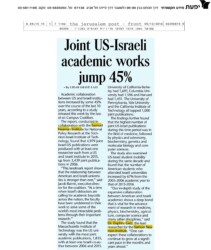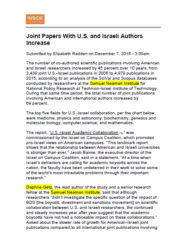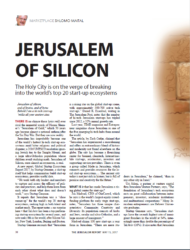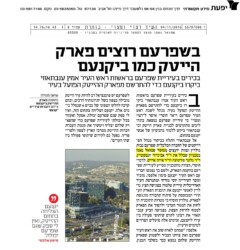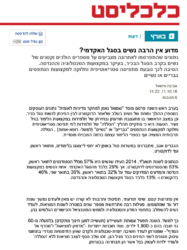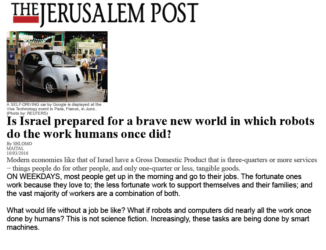Connect to schedule an interview
+972.4.829.2329
Neaman in the media
The city of Givatayim decided to preserve its historic legacy
The City of Givatayim’s new heritage-preservatino plan has been approved by the District Planning and Building Commission.. The buildings earmarked include several landmarks in the city’s important legacy of MAPAI and the socialist movements, as well as one typical building among a complex of cooperative worker housing for employees of Kupat Holim (General Sick Fund) employees. The rest of the housing will undergo urban regeneration at much higher density.
Joint US-Israeli academic works jump 45%
Academic collaboration between US and Israeli institutions increased by some 45% over the course of the last 10 years, according to a study released this week by the Israel on Campus Coalition (ICC).
Joint Papers With U.S. and Israeli Authors Increase
The number of co-authored scientific publications involving American and Israeli researchers increased by 45 percent over 10 years, from 3,439 joint U.S.-Israel publications in 2006 to 4,979 publications in 2015
Heat stroke
Global warming is not only rising temperatures, but climate disorder: Huge fires, droughts, heat and cold waves, floods and high winds. The weather has gone crazy and we should prepare for it before the next ecological disaster.
JERUSALEM OF SILICON
The Holy City is on the verge of breaking into the world’s top 20 start-up ecosystems
Shfar’am wants an High-Tech Park as the one in Yokneam
Eitan Adres, Avigdor Zonnenshain, Gilead Fortuna
Shfar’am municipality officials led by Mayor reliable Anabtawi visited Yokneam High-Tech Park to be impressed by the High-Tech Park in the city. the mayor was accompanied by senior researchers at the Samuel neaman
The path for increasing energy efficiency
The Samuel Neaman Institute for National Policy Research publishes policy recommendations on energy efficiency. A Document written by Prof. Gershon Grossman, head of the Energy domain in the Samuel Neaman institute, states that the recognition of the problem of inefficiency and waste is increasing in the energy sector. Energy Efficiency can help Israel meet obligations it undertook in the field of reducing polluting emissions.
Why there aren’t many women on the academic staff?
Recently published data indicate diminishing numbers of women among senior staff, primarily in the technology and engineering. The reason for this stems from the stereotyped and perceived professions division
The 5776 mirror: Looking back over the past Jewish year
As we look back over the past Jewish year, Israel has room for much optimism and hope – and a dark cloud or two.
Is Israel prepared for a brave new world in which robots do the work humans once did?
What would life without a job be like? What if robots and computers did nearly all the work once done by humans? This is not science fiction. Increasingly, these tasks are being done by smart machines.

